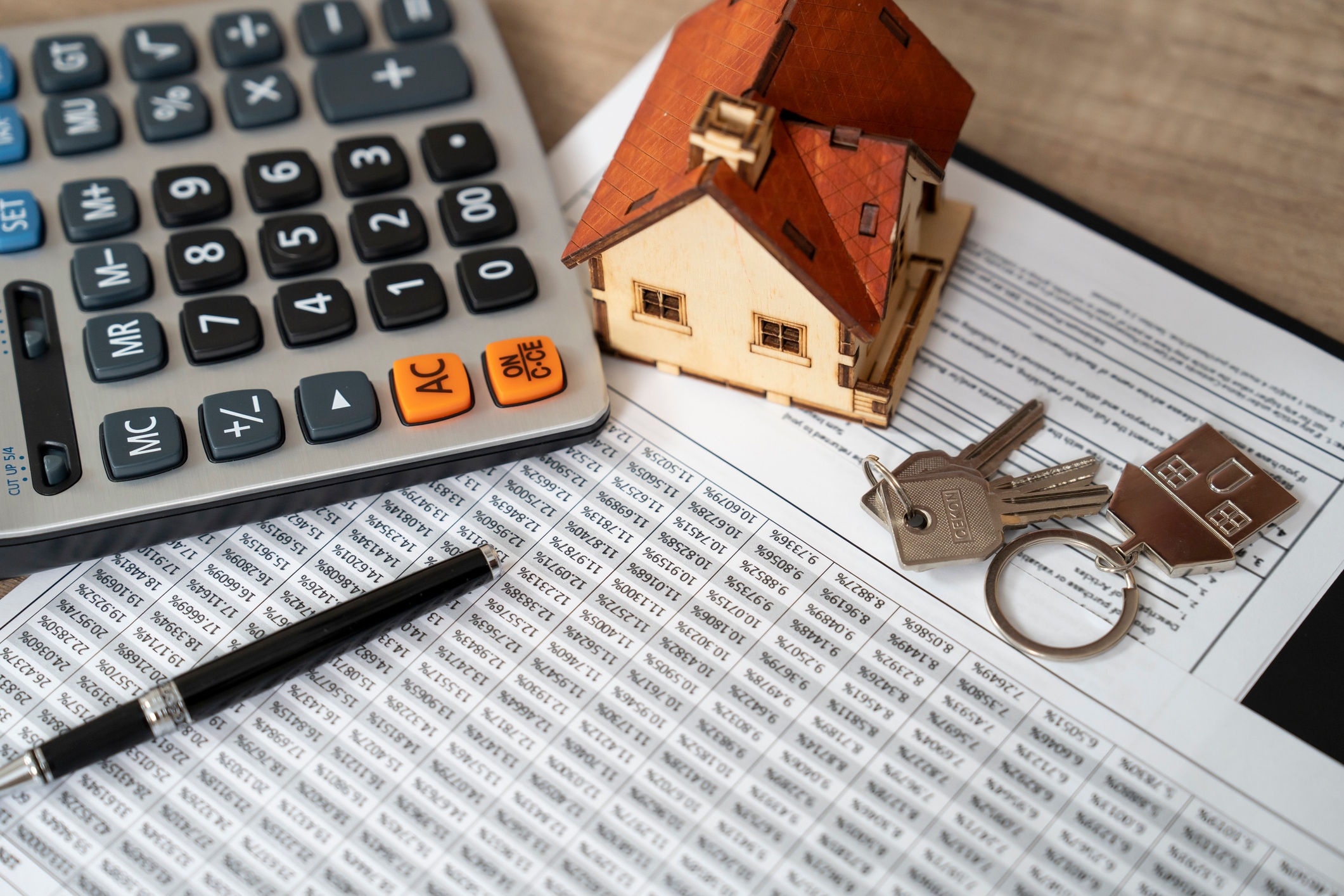Lenders typically require a credit score of around 740 to offer you the best loan terms, but that doesn’t mean you can’t buy a house if your score is lower. The mortgage options that you qualify for will vary depending on your creditworthiness. With a good credit score, you can secure better terms, such as a better interest rate, a larger loan amount or a lower down payment.

Understanding Your Credit Score
Your credit score measures how well you manage your debt. It is based on your credit report, which collects information on your current credit situation, such as your loan-paying history and the status of your credit accounts.
When you apply for a credit card, loan, or other financing, lenders access your credit score, either your FICO score or your VantageScore, from various credit reporting agencies. The three main agencies are Equifax, Experian and TransUnion. The scores you receive from each bureau can vary because each bureau may have different information about your credit.
Lenders input your credit score into a scoring model to establish how risky you are as a borrower. The more risk you present, the more interest you may pay for a loan. That’s because lenders use interest as insurance if you default on the loan.
Credit scores range from 300 to 850. According to Experian, 670 to 739 is considered good. A credit score above 740 is very good, and above 800 is excellent.
It’s important to check your credit score periodically because your credit report may contain incorrect information that will bring down your score. By law, you can get a free credit report each year from the three credit reporting agencies: Equifax, Experian, and TransUnion.
Credit Scores Affect Mortgage Rates
According to The Mortgage Reports, it’s possible to get a mortgage with a credit score of 620. The trouble is that you’ll likely have a higher interest rate and monthly payments.
Mortgage lenders have certain credit score requirements when deciding what interest rate to offer you for a mortgage. The higher your score, the less risk you pose regarding default, so the less the lender will charge you to borrow money (the interest rate).
How does the interest rate affect your mortgage payments? Your monthly mortgage payment has two components: principal and interest. The higher your interest rate, the more you will pay each month on top of your principal.
Here are two hypothetical scenarios of a 30-year fixed mortgage on a $300,000 home with two different interest rates. We assume a 20% down payment ($60,000) in both scenarios.
| 7.38% Interest Rate | 6.2% Interest Rate | |
| Monthly Payment | $1,658.44 | $1,469.93 |
| Total Payments (30 years) | $597,038 | $529,173 |
| Total Interest Paid | $357,038 | $289,173 |
With a lower interest rate, you will pay $67,865 less over the loan term.
Beyond the Minimum Score
Mortgage lenders might require a minimum credit score for a loan. However, meeting the minimum is a low bar. A higher credit score typically means better loan terms and larger loan amounts.
You may also avoid paying private mortgage insurance (PMI) on a conventional loan if you can secure a strong down payment. The lender might want you to pay PMI if you have a conventional loan with a down payment of less than 20% of the purchase price to protect them against default.
Credit Score By Mortgage Type
What type of mortgage can you qualify for? The two main types of mortgage loans are conventional and government-backed loans.
Conventional Loans
Conventional loans are the most popular mortgage loans, and the minimum credit score is typically 620.
A conforming loan is a type of conventional loan set by the government-sponsored enterprises Fannie Mae and Freddie Mac. They generally have lower interest rates and down payment requirements than non-conforming loans. These loans are regulated by the Federal Housing Finance Agency (FHFA).
A non-conforming loan, such as a jumbo loan or government-backed loan, does not meet FHFA standards for conforming loans. It cannot be purchased or owned by Fannie Mae and Freddie Mac. A non-conforming loan may be larger than the limits set for conforming loans or targeted at borrowers with poor credit or unique financial circumstances.
Government-Backed Loans
Government-backed loans are insured by the federal government and are less risky for the lender. There are three types of government-backed loan programs: VA loans, USDA loans and FHA loans. Each loan type has its own requirements for loan approval.
FHA Loans
The Federal Housing Administration (FHA) insures FHA loans. The minimum credit score requirement is 500 with a 10% down payment and 580 with a 3.5% down payment.
VA Loans
VA loans are for active-duty service members, veterans, U.S. Army Reserve and National Guard members, and surviving spouses. The Department of Veterans Affairs (VA) insures VA loans. There’s no minimum credit score requirement, but lenders often use a guideline of 620.
USDA Loans
USDA loans are designed for those who want to buy a home in a rural or suburban area that the United States Department of Agriculture (USDA) deems eligible. The USDA does not require a minimum credit score, but lenders typically prefer a score of 620 or more.
Jumbo Loans
Jumbo loans exceed the FHFA’s conforming loan limits. You will likely need a higher credit score to qualify, and individual lenders set their own eligibility criteria and loan size limits for jumbo loans.
Factors Beyond Your Credit Score
Your credit score is not the only factor that lenders look at when evaluating a mortgage application. They also look at your debt-to-income ratio (DTI), employment history, savings and down payment amount, and the value of your assets.
Debt-to-Income Ratio (DTI)
Your debt-to-income ratio is a calculation that shows how able you are to pay your monthly debts. If you have little debt and a high income, your debt-to-income ratio will be low, and you can easily take on more debt and still meet the payments.
To calculate your debt-to-income ratio, divide all your monthly debt payments by your gross monthly income. Your gross monthly income is generally the money you have earned before your taxes and other deductions are taken out.
If your monthly debt payments are $2,400 (including your mortgage, auto loan and credit cards) and your gross monthly income is $6,000, your debt-to-income ratio is 40%. A good debt-to-income ratio is 35% or less.
Employment History
Lenders will look at the length of your employment in your current job, your past jobs, whether you have a stable income, and whether you show a pattern of career advancement to decide your reliability as a borrower.
Savings and Down Payment
Saving a substantial down payment demonstrates that you are financially responsible. This enhances your chances of loan approval, especially if your credit score is less than ideal.
Your Assets
If you have assets, this increases your chances of getting good loan terms. Assets can be used to pay debt. Assets that a lender likes to verify include:
- Cash on hand or in your checking or savings accounts, money market accounts and certificates of deposit (CDs).
- Physical assets like homes, cars and boats.
- Liquid assets like stocks, bonds and investment funds.
Strategies for Improving Your Credit Score
If your credit score is low, improving it before you apply for a mortgage is a good idea. You will be paying off your mortgage for a long time, so it’s worth doing everything possible to secure the best loan terms and the lowest monthly payments.
Here are some actionable steps you can take to raise your credit score.
- Live within your means. If your income is insufficient to meet your monthly expenses, you will have no choice but to go into debt. That will lower your credit score. Lower your expenses or find additional income to avoid debt.
- Keep your credit card balances low. This will keep your credit utilization ratio low. Part of your credit score is based on whether you use all the credit available from credit cards and other lines of credit. The less you use, the better your credit score will be.
- Make timely payments. Paying your bills on time shows that you are a responsible borrower. That will raise your credit score.
- Check your credit score often. Dispute any errors on your credit report. It’s your responsibility to find them and take steps to get them removed.
- Consider a credit builder loan. A credit-builder loan allows you to make fixed payments into a savings account over several months, boosting your credit score. At the end of the term, the lender returns the account’s balance, possibly including some of the interest you paid.
How Long Does it Take to Improve Your Credit Score?
According to Equifax, if you improve your credit score, you might see a change in 30 and 45 days at the earliest.
It takes lenders that long to notify the credit rating agencies of any information relating to your accounts, and it might take a few months for any positive measures to affect your credit history. There is no quick fix. A good credit score is built through responsible debt management over time.
The Bottom Line: Your Credit Is Your Homebuying Power
It’s worth investing the time to improve your credit score before you apply for a mortgage loan because a lower interest rate will make a huge difference to the total amount you will pay over the life of the loan. Saving for a down payment will also improve your chances of qualifying for a loan with good terms.
FAQs: Credit Score Requirements to Buy a House
A credit score of 740 is considered good and will secure the lowest rates. It’s possible to get a conventional mortgage with a credit score of 620.
Yes. You can buy a house with a 600 credit score. With a 10% down payment, you can secure an FHA home loan with a credit score as low as 500. With a 3.5% down payment, you can get an FHA loan with a credit score of 580 or higher.
To buy a $250,000 house, you’ll likely need a credit score of 620 or higher to secure a conventional home loan. A score of 740 typically qualifies you for the best interest rates and loan terms. If your credit score is lower, you may be able to purchase a $250,000 home with an FHA loan.
Caroline Banton is a freelance writer with over a decade of experience covering real estate, personal finance and homeownership. Her articles have appeared on SoFi, The Huffington Post, Investopedia, The Motley Fool, LendingTree, MSN and Time. Caroline has an MBA from Johns Hopkins University.













